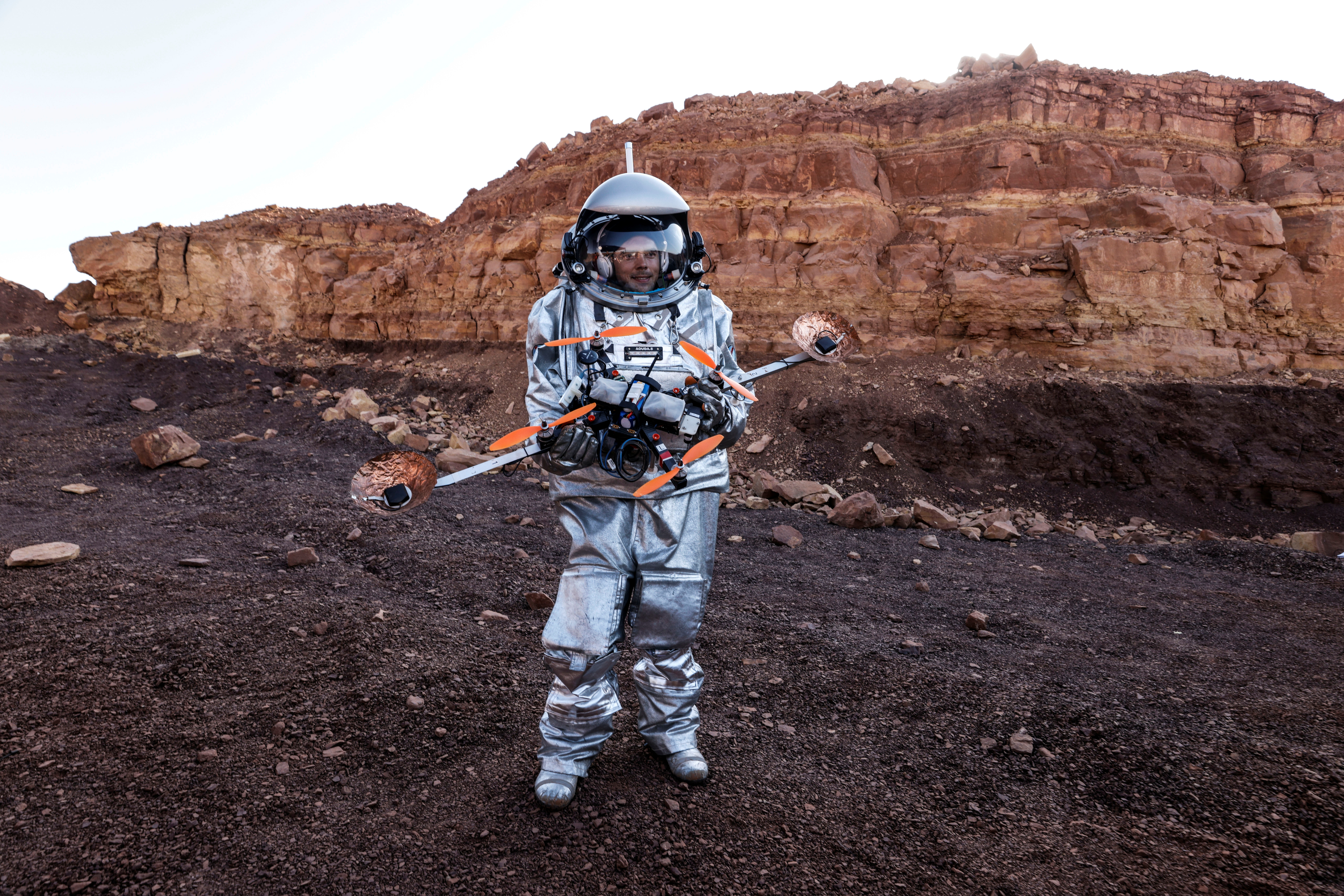In a rocky Israeli crater, scientists simulate life on Mars

A scientist holds a drone as he participates in a demonstration of an experiment led by Austrian and Israeli agencies simulating a mission to Mars near Mitzpe Ramon, Israel October 10, 2021. REUTERS/Amir Cohen
RAMON CRATER, Israel — From the door of the expedition base, a few small steps to the left an autonomous rover passes by. A few giant leaps to the right is an array of solar panels. The landscape is rocky, hilly, tinged with red. Purposefully it resembles Mars.
Here, in the Ramon Crater in the desert of southern Israel, a team of six – five men and one woman – have begun simulating what it will be like to live for about a month on the red planet.
Their AMADEE-20 habitat is tucked beneath a rocky outcrop. Inside they sleep, eat and conduct experiments. Outside they wear mock space suits fitted with cameras, microphones, and self-contained breathing systems.
“We have the motto of fail fast, fail cheap, and have a steep learning curve. Because for every mistake we make here on earth, we hope we don’t repeat it on Mars,” said Gernot Gromer, director of the Austrian Space Forum.
The Austrian association is running the project together with the Israel Space Agency and local group D-MARS.
Article continues after this advertisementA number of recent Mars probes have captivated astronomy fans across the world with robotic rovers like NASA’s Perseverance and, for the first time, the helicopter Ingenuity, offering a glance of the planet’s surface. But a manned mission is likely more than a decade off.
Article continues after this advertisementWith AMADEE-20, which was supposed to happen in 2020 but was postponed due to COVID-19, the team hopes to bring new insight that will help prepare for that mission, when it comes.
“The habitat, right now, is the most complex, the most modern analog research station on this planet,” said Gromer, standing beside the 120 sq meter (1,300 sq feet) structure shaped like two large, connected yurts.
The six-team members are constantly on camera, their vital signs monitored, their movements inside are tracked to analyze favorite spots for congregating. All this to better understand the human factor, Gromer said.
Outside, other engineers and specialists work with a drone and rover to improve autonomous navigation and mapping in a world where GPS is not available.
Altogether they will carry out more than 20 experiments in fields including geology, biology, and medicine and hope to publish some of the results when finished.
“We are six people working in a tight space under a lot of pressure to do a lot of tests. There are bound to be challenges,” said Alon Tenzer, 36, wearing the spacesuit that carries some 50 kg (110 lb) of equipment. “But I trust my crew that we are able to overcome those challenges.”